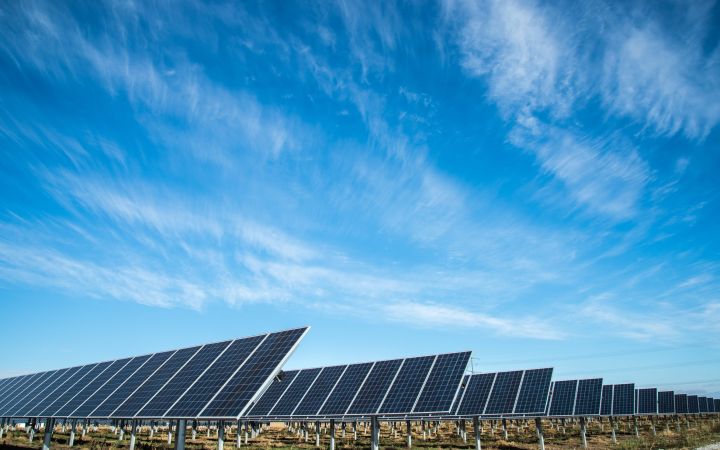The UN’s premiere training institution recognizes the need to include women in sustainable energy fields
11 May 2021, Geneva, Switzerland - UNITAR will be offering a new training programme titled Gender Mainstreaming in Renewable Energy Trade. This offering is aimed at training policymakers with a better understanding of the gendered dimensions affecting the growth of the renewable energy sector and renewable energy trade.
Globally, the concepts of green growth and sustainability are gaining ground against a backdrop of climate change, natural disasters, and human-inflicted pressures on the Earth. One of the ways in which countries are attempting to mitigate the fallout from climate change is by switching to sustainable green growth options, including renewable energy. A resource efficient, low carbon[1] economy is essential for green economic growth and offers opportunities for poverty alleviation and green job creation[2]. Investment in green and sustainable industries can promote long-term economic competitiveness and climate resilience in both developed countries, but also in less developed and rural communities.
Like many other forms of infrastructure, however, energy infrastructure is often presumed to be gender neutral, when it is not. A lack of awareness in energy-poverty issues means policymakers are often not fully aware of their significance and therefore lack the tools and strategies that enable them to mitigate these challenges. Energy-poverty has a direct impact on women – for example, women-headed households are more likely to use traditional fuels, spend more time and money on procuring their access to energy, and experience negative health side-effects because of their over-reliance on unsafe energy sources. It has become clear that while the rollout of clean energy to such communities is an important step for green growth, it is equally important that women are part of the solution and have an opportunity to participate in the trade of renewable energy. As governments increase their investments in green energy infrastructure and prepare accompanying policies for the growth of such industries, it is important that policymakers adopt a gender-specific lens that will promote and enable greater women’s participation in the trade of renewable energy.
In this regard, UNITAR is offering this new training programme that is tailored to policymakers and will help them identify how trade and industry development of the renewable energy sector can be made more gender-friendly and gender aware. Policymakers will learn the importance of gender mainstreaming in the renewable energy sector and, through the use of case studies, understand how women’s participation can be enhanced and promoted in renewable energy trade.
The programme includes five modules, the first of which will provide an overview of the history and main principles of gender mainstreaming, particularly in the context of trade. Module two is focused on drawing the links between renewable energy, gender and trade and understanding the gender-poverty-energy nexus. It explains how empowering women and enhancing their participation in renewable energy trade is important for sustainable growth and a green growth agenda. Module three unpacks the principles for designing a gender mainstreaming toolkit that can assist policymakers in the design of their own gender mainstreaming policies. Module four helps course participants understand how policymakers and the private sector can work together to alleviate the challenges faced by women trying to enter the renewable energy sector and identifying how support mechanisms can be designed and implemented to encourage their participation in the trade of renewable energy. The final module provides conclusions and course learnings, highlighting the main principles to remember when designing a gender mainstreaming toolkit for domestic use.
This training programme will be offered online and will feature course packs and opportunities for discussion. In addition, weekly assessments and discussion topics will test the learning and allow participants to interact among peers and with the Course Facilitator. The course will also be offered as asynchronous learning, which means that participants will have more freedom to accomplish course tasks depending on their schedules and time zones.
Interested participants can click this link for more information about the programme, which will begin on September 27, 2021, and last until November 5, 2021.
Gender Mainstreaming in Renewable Energy Trade
Course starting date: September 27 to November 5, 2021 (5 weeks, fully delivered online, Expert-moderated)
Course information and registration: https://www.unitar.org/event/full-catalog/gender-mainstreaming-renewable-energy-trade
footnote
[1] A low-carbon economy is one based on minimal outputs of greenhouse gases, mitigate the effects of climate change and promote a green strategy for economic growth and development.
[2] W. Stafford and K. Faccer (2014) Steering Towards a Green Economy. Pretoria: Council for Scientific and Industrial Research (CSIR).


